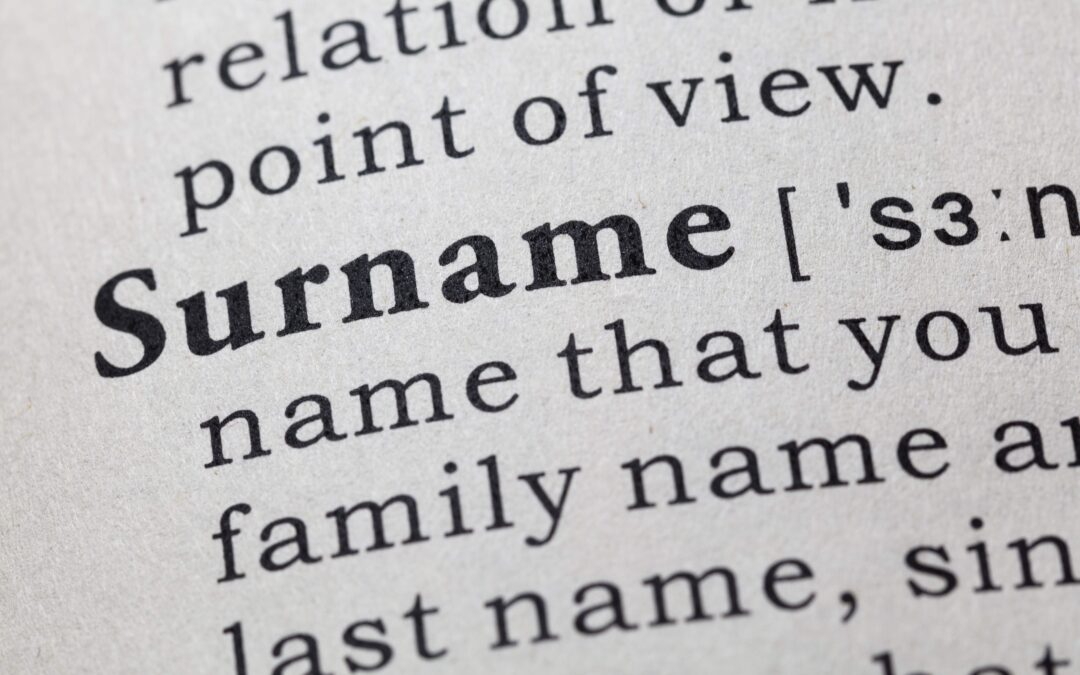How to Trademark a Name
A trademark can be a word, phrase, design, logo, color, sound, or a combination of those things that identifies the source of a product or service. Surnames can be also used as trademarks, but only under certain circumstances.
Primarily Merely a Surname
Trademark Law provides that a term, which is “primarily merely a surname is not registrable on the Principal Register absent a showing of acquired distinctiveness.” (15 U.S.C. § 1052(e)(4)) Several federal courts throughout the United States have determined that “[f]or the purpose of trademark analysis, personal names—both surnames and first names—are generally regarded as descriptive terms which require proof of secondary meaning.” Such proof includes exclusive use of the mark as a trademark over an extended period. Another factor is that the purchasing public has come to recognize the name as a trademark and not as a surname.
5 Factor Test
The test for determining whether a name, that is used as a trademark, is “primarily merely a surname” will depend on the significance of the mark in the eyes of the purchasing public. Every case is different, and each must be decided on its own facts. The USPTO takes into consideration five factors when examining trademark applications for surname registration. If you are thinking about registering your name as a trademark, here are the things you must consider:
- Is the surname you want to use rare?
- Whether the term you wish to use is the surname of anyone connected with the applicant?
- Does the term you want to register have any recognized meaning other than as a surname?
- Does the term you want to use have the “structure and pronunciation” of a surname?
- Whether the stylization of lettering is distinctive enough to create a separate commercial impression?
Even if (in your opinion) you are able to answer the above questions in a manner that gets you over the first hurdle, it is only the first hurdle. You should remember that there is always the possibility that your application will be challenged. The challenge could come from the USPTO in an office action, or it could come from a third-party during publication.
I strongly encourage you to consult with a competent trademark attorney who can advise you on effective next steps. This is because the law changes on a regular basis and getting reliable legal advice is critical for your pocketbook and your peace of mind. The last thing you want is to be caught off guard after having spent a lot of money trying to register your name.
Until next time, I’m Attorney Francine D. Ward, here to help you protect what’s yours.

Francine D. Ward
Attorney-at-Law, Author, Speaker
Follow Francine:
Don’t miss Francine’s Latest Blogs:
- Life PillarsLife Pillars — A New Beginning Life Pillars. A New Beginning. With every new year, folks feel the pressure to start afresh. There is a desire to reinvent themselves, to… Read more: Life Pillars
- End of Year ReflectionsEnd of year reflections. As 2025 came to an end, I found myself thinking about what was important to me. What kept rising to the surface were spirituality and service.… Read more: End of Year Reflections
- Living Life on PurposeLiving Life on Purpose I just turned 73 and found myself reflecting on my life, in light of all that’s happening around me. It wasn’t about being dramatic or thinking… Read more: Living Life on Purpose
- Declutter Home.From Chaos to Calm: Why Decluttering is a Gift to Yourself and Your Family Declutter home. How often do we think of decluttering as simply “cleaning up” a messy or… Read more: Declutter Home.
- snapshot of youA Snapshot of YOU! Health and Finance, a snapshot of you. This is another blog addressing Part 3 of the Esteemable Acts Vision and Values Worksheet Series. It is your… Read more: snapshot of you

